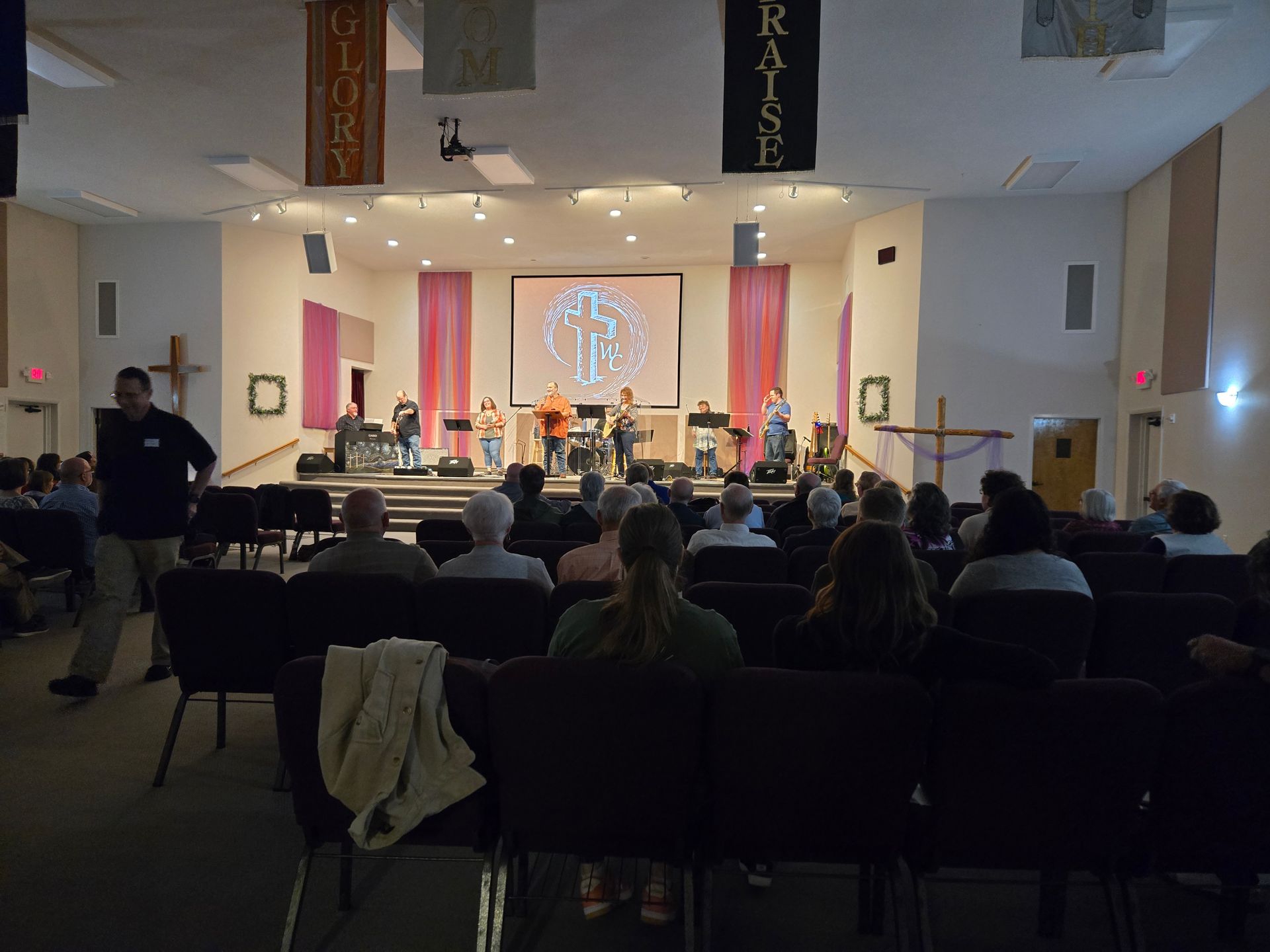It's Time to Change Three-Fold Communion
In The Brethren Church, we hold a value of "Contextual Brethren Life." There is an understanding that we can embody our history, our traditions, and our commitment to scripture while still incorporating a posture that is sensitive to the needs and language of our context.
Paul spoke of this in his first letter to the church at Corinth:
"19I am not anyone's slave. But I have become a slave to everyone so that I can win as many people as possible. 20When I am with the Jews; I live like a Jew to win Jews. They are ruled by the Law of Moses, and I am not. But I live by the Law to win them. 21And when I am with people who are not ruled by the Law, I forget about the Law to win them. Of course, I never really forget about the law of God. In fact, I am ruled by the law of Christ. 22When I am with people whose faith is weak; I live as they do to win them. I do everything I can to win everyone I possibly can. 23I do all this for the good news because I want to share in its blessings."
Paul understood the value of embodying culture from within to draw people close to Jesus.
Many of our Brethren Churches have been wrestling in recent years with dwindling attendance numbers at Three-Fold Communion. Our commitment to three-fold communion (the love feast, the bread and cup, and foot washing) runs deep. Brethren have long been committed to emulating Jesus' actions in the New Testament as closely as possible.
But, as we so often do, we have allowed what was once practical logistic considerations to become as hallowed as the ordinances themselves. Many Brethren faithful cannot imagine three-fold communion without their pickles, or with anything fancier than broth and bread, or a certain kind of finger sandwich.
As if Jesus had a platter of finger sandwiches at the last supper.
In that vein, we want to share with you some of the ways that congregations are successfully re-contextualizing this ordinance with the "cloak of culture," living and doing as those around us so that we might better win them.
When St. James Brethren Church (Hagerstown, MD) decided to make significant shifts to their three-fold communion service, it had instant and exponential effects. Here's what they did.
Change The Time
Reality is, getting to church on Sunday morning is hard for young families. Coming back for a service in the evening is even harder. Arriving back at dinner time on a school night? Forget it.
So SJBC changed the time. They moved three-fold communion to follow immediately after their second morning service. The gathered meal would be at lunchtime, rather than dinner.
After a short break following the service to allow folks to enter/exit from the worship service to the Ministry Center or head home if they weren't staying, they get underway. Gathering in the Sanctuary for prayer, it's a way to keep folks together and not have to come back.
Change the Food
Let's be honest. We have elevated our love feast food choices to a level that borders ridiculous.
On a practical level, families were choosing between feeding their children a "second supper" after three-fold communion or fighting them during the meal even to eat what was in front of them.
SJBC decided to stop fighting. For the first few times after the change, the church catered in a full lunch. Was there a cost? Yep. Did it help remove barriers for members to participate? Yep.
Now, the church provides a full-meal prepared by the Deacon ministry at SJBC.
The congregation moves from the Sanctuary to the Family Life Center for the shared meal, and subsequent foot washing.
Change The Atmosphere
Leadership at SJBC realized that much of the ministry that was occurring during foot washing came from the conversations folks had before, during, and after washing each other's feet. Unfortunately, in the past, the rooms they used for foot washing were only big enough to accommodate a small number of people at a time. This meant many were relegated to washing the feet of whomever they sat near at the meal, and only had a chance to minister or be ministered to by those same folks.
SJBC moved the foot washing into the open, allowing all to approach the foot washing stations at the same time. And the impact was tangible. People connected more. There was more prayer. There was more fellowship. Was it noisier? Yep. Did people forge deeper connections over this holy moment? Yep.
Change How You Talk About It
This might be the most significant change of all. SJBC made a measurable change in how they promoted Three-Fold Communion. More and more people are attending and joining Brethren churches from other traditions and denominations. Many do not understand what Three-Fold Communion is.
By starting multiple weeks out, SJBC was able to take the time in services to explain what it is, why it is so important, and to de-stigmatize foot washing. This is part of being hospitable! When we welcome others into our church, we care enough about them to walk them through our family traditions and celebrations! SJBC even did a demonstration of foot washing one week in service to help people understand.
These changes paid dividends. The first three-fold communion that implemented these changes drew hundreds from the church — an exponential increase in attendance! And attendance has stayed up since.
So we want to hear from you! What is your church doing to contextualize this important Brethren practice?






























